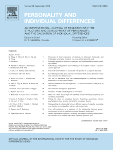New article "Does biological endowment matter for demand for financial services? Evidence from 2D:4D ratio in the Russian household survey"
New article "Does biological endowment matter for demand for financial services? Evidence from 2D:4D ratio in the Russian household survey" by Maria Semenova in Personality and Individual Differences.
Highlights
 We investigate if prenatal testosterone measured by 2D:4D ratio influence household financial inclusion
We investigate if prenatal testosterone measured by 2D:4D ratio influence household financial inclusion- We use RLMS survey data on Russian households, 2011–2012
- For women higher PT means lower demand for deposits and loans and higher demand for life insurance
- For men higher PT means higher demand for loans and more active bank card use
- Relationship for bank card use and insurance is non-linear for women
Abstract
There are many studies revealing factors which influence the demand for financial services. However genetic features, determining the individual's overall postnatal behaviour, have not been studied within this context. This paper extends the previous literature by studying to what extent individual biological endowment, proxied by prenatal testosterone (PT, measured by the 2D:4D ratio), can determine personal demand for bank services and insurance. We use the data from the Russian Longitudinal Monitoring Survey (RLMS) of 2011–2012. Our findings confirm the existence of the link between inherent biological variation and financial inclusion: PT affects the use of bank cards, intention to borrow from a bank, having a bank deposit and the consumption of insurance products.
Andrievskaya, I., & Semenova, M. (2017). Does biological endowment matter for demand for financial services? Evidence from 2D:4D ratio in the Russian household survey. Personality and Individual Differences, 104, 155–165. http://doi.org/10.1016/j.paid.2016.07.019
Date
20 August
2016
